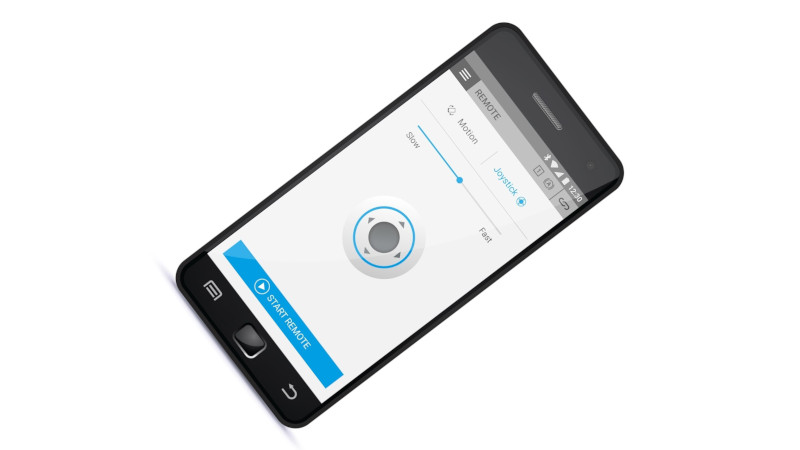The writer Cory Doctorow coined the term enshittification to describe the way that services decline in quality as their users become the product. He was talking about online services when he came up with the word, but the same is very much true when it comes to hardware. Items which once just worked now need apps and online services, with marginal benefit to the user if any. It’s one thing when it’s your soundbar or your washing machine, but thanks to Lemmy user [@win95] from the Netherlands we’ve seen a far more egregious example. People with disabilities are being provided with new powered wheelchairs through their medical insurance, but are then discovering that unaffordable in-app purchases are needed to use their features.
The chairs in question come from the German company Alber, and it seems their defence for the practice is that an Alber chair can be used without the paid-for software upgrades. Reading the many comments attached to the thread linked above it seems this is not a view shared by the people with disabilities who have the chairs, so we’d be extremely interested to know more from both the company and its customers. Either way, selling a very expensive mobility aid and then demanding hundreds more Euros for its features via the app seems to us if it’s as described, to be at least rather questionable. We hope therefore that it attracts some publicity, and the company is shamed into abandoning the practice.
It would be tempting here to exhort the hacker community to blow whatever protocols these chairs use wide open, and create a free and open source app which runs everything on an Alber chair. We certainly know enough people with the skills to do this, and we’re certain there are many more among our readers. But oddly here this isn’t the answer, and not because they might resort to legal measures such as the DMCA. A wheelchair is a vital mobility device for its users and superficially a straightforward enough machine, but it’s also a medical device which has to adhere to a bunch of standards to ensure that it doesn’t harm its user. For that reason perhaps it’s better to shame the manufacturer into ending the practice, and ensuring that people with Alber chairs can use them without resorting to hackery. After all, becoming an engineer saviour by accident is always something to be wary of.
















Short term favour, long term disaster.
Does the DMCA apply in Germany?
Basically yes. All countries under the Berne Convention harmonize their copyright laws. There are some small differences, but since US depends on imaginary property exports, they’ve made sure their customers are policing themselves.
Take-down procedure being different.
https://www.dmca.com/FAQ/European-DMCA-Takedown-process
NO, the DMCA is the US implementation of a WIPO agreement.
So in a netherlands/germany issue the local/EU implementation would apply and not the US version – with the same end-effect though I suspect. But it would not officially be called DMCA.
And @ Ostracus, it’s not a US originating ;DMCA’ takedown if it is a German company,.
You have to add that although it’s private-but-mandatory it also is regulated by the Dutch government, including the government specifying what has to be minimally covered by insurance companies.
Not quite, but as others pointed out the DMCA is just the US implementation of the WIPO Copyright Treaty. It sounds a little dodgy at first, the executive branch of government agreeing to a treaty which binds the legislative branch to pass laws, but this is really a commonplace event and the means by which most treaties work. Shady, but no more so than other routine business of government. Germany gets an extra layer in between, as they are a signatory via the EU. So the EU passed their implementation in the Copyright and Information Society Directive 2001 (only five years delay, pretty fast for government action!), which obliged member states to (eventually) pass their own domestic laws which enforced the requirements of CISD 2001 and thus WIPO 1996.
The practical offshoot of all this is that while the DMCA only applies within the US, almost every country will have their own law which is functionally very similar to the DMCA in both notice-and-takedown and anti-circumvention provisions.
As for regulations, most likely the softwsre is class A medical software, as which point very few regulations apply.
So few things:
1) hack away!
2) make sure whatever consumer protection you have burns these companies to the ground
3) refuse to ever work on a product like this
I know people that fully depend on wheelchairs and this practice is dispicable. Whoever decided that this was a valid product development should be forced to live without the use of legs for a few months and no wheelchair. See how fast they would crawl back!
There was a prototype motorcycle airbag built into a helmet or jacket (I seem to remember) that would only work if you were paid up on a monthly subscription.
I agree, absurd
Do you mean this one? https://hackaday.com/2021/05/18/do-you-really-own-it-motorcycle-airbag-requires-additional-purchase-to-inflate/
Engineers are wheelchair users too, and to say that they can’t adapt or modify their own tools because someone else has declared they are “medical devices” seems a little patronising. Individuals can make their own determinations of “safety” for their most personal of equipment.
“it seems their defence for the practice is that an Alber chair can be used without the paid-for software upgrades” ….. I believe Tesla have a similar paid for software upgrade thing to Alber, so if the wheel chair user wants Turbo boost, Sat Nav, Seat Warmer, Quadraphonic Sound System and Onboard Coffee Machine ….. they’ll need to cough up extra Euros. Presumably the basic functions of the wheelchair are free, but we dont know that unless somebody goes out there and gets the facts from Alber.
…. apparently, according to Gemini:”The specific features of the Alber app for their E-fix power add-on system are called “Smart Mobility Plus” and include:
Remote control: Control your E-fix system remotely from your smartphone
easyNavi system: Presumably an app-based navigation system to assist you on your journeys
Battery monitoring: Check your battery level and estimated remaining range
Maintenance tips: Get helpful information on troubleshooting and maintaining your E-fix system
Dealer locator: Find a network of Alber dealers worldwide”
….. No onboard coffee maker, but i was right about the sat nav.
I think a battery monitor is a very unessential service, which the user should be happy to have and willing to couch up some dough for.
It would be a nice easy hack to add your own battery manager with an MCU, Bluetooth transmitter, transistor and a couple of resistors. Just sync it with a regular, free, bluetooth phone app. Adding remote control …. well that could be fun too!
* battery monitor
I’d guess the battery can be viewed on the wheelchair, this is just remotely seeing the battery level without getting up out of your couch. Which, to be fair, might be an issue for some of their target audience.
Yep, hopefully. If I was the Alber CEO I’d put enough features on the chair to maie it fully functional, including battery monitor, then have all the extra ‘luxury’ features on the app for those with enough spare cash to indulge themselves. Win Win situation IMO – the cash strapped customer gets a cheap chair, in effect discounted by those who pay for the expensive app. Just a question of getting the balance right and not pissing off the customers and general public at large.
That really is crap, if you need assistive tech you need assistive tech, and all of those features beyond the navigation that could be done on the smartphone anyway seem like essential and very basic features to me.
I guess if there were enough people with your (perfectly valid) opinion, then the Alber CEO got it wrong and should be fired. Hopefully they did enough market research / customer surveying to get it right.
They don’t need to bother – just pay off the insurance folks (if you need to) and thus make sure to gain a captive market that can never leave. If it gets too much negative publicity pay a few lobbyist for a tiny fraction of the money the captive audience is bringing in to muddy the waters and let you continue to make a killing on these folks. Finally if it ever looks like the winds are really going to turn against you and make you treat your customers decently simply discontinue that model, maybe even the company folds entirely and start again, same shitty method, nearly identical product, but now it is some other subsidiary selling them…
The folks that are needing this stuff and getting it through their insurance don’t usually get any choice in what they receive, and are then stuck paying for these very basic features forever if they can’t afford to buy for themselves a competitors actually reasonable product… Or find somebody to hack the bovine excrement out of the wheelchair they are relying on and hope that doesn’t in some way break the terms of service and have the big company’s legal team landing on them like a sack of bricks…
Disgusting. But I guess its obvious why they so this. By having all this exuberant app purchases, the wheels can be cheaper, meaning insurance comap ies who put out tenders and opt for the cheapest model end up with these companies.
Insurance company happy, manufacturer happy. User … Meh who cares, they get tax money right?
So appealing this. The EU should demand open source hardware and software for these kind of devices. These things are mostly insurance/tax funded anyway.
https://www.alber-usa.com/us/products/active-drives/e-motion/#app
Free Features:
Option of 5 pre-defined driving profiles (standard, sensitive, sensitive plus, soft, active)
Battery status display, speed and distance travelled
Recording and managing of trips using GPS tracking
Automatic discharge of batteries for storage or for air travel
Dealer search, contact option with the Alber Service
Display of detailed error messages with hints and remedies
Add-on features:
SPEED
Increases the maximum assistance speed of the e-motion from 3.7 mph to 5.3 mph
CRUISE
Works in a similar way to the cruise control of a car: Ideally suited for longer rides along level ground, pushing a shopping cart or a luggage
It is activated by a single push above 1.2 mph and maintains this speed without additional pushing (works also on slopes and downward slopes)
The speed can be increased at any time by additional pushes on the push rim or in the app
REMOTE
Remote control of the unoccupied wheelchair using a smartphone, e.g. to “repark”
Controlled via built-in inclination sensor of the smartphone or with a virtual joystick in the app
ECS
Depicts the functions of the ECS remote control
Convenient switching on and off of the e-motion wheels from a seated position
Selection of two assistance levels plus learning mode
Activates the rollback delay
These are add-on wheels for standard wheel-chairs, so while these add-ons are nice, they are not essential.
Cory’s name is correctly spelled “Doctorow”, in case you’re looking for more of his work. Some is quite good.
Fixed the typo!
Good news, we didn’t typo when he gave the keynote talk at Supercon back in November: https://www.youtube.com/watch?v=VT1ud0rAT7w
Great talk, and given to just the right audience too. Worth a watch if you missed it.
Who selected this product, the insurance company? Why blame the manufacturer? Did anyone really check what the limitations are (see https://www.alber.de/en/products/active-drives/e-motion/#app). Are these ‘plus package’ addons limiting the use of the wheelchair?
This is clearly a misunderstood attempt at making government subsidized products cheaper (for the government).
It makes perfect sense. The manufacturer of the products offers features not requested by government as a paid-on upgrade, and in exchange makes the product with the government required features slightly cheaper. Hence well heeled end users subsidize the process.
I see no evil in this, though they should have proactively messaged the intent so that it wasn’t misunderstood.
The health insurance in the Netherlands is I believe a mixture of Government and privately-sourced cover. This would have undoubtedly been provided by the private part.
Undoubtedly?
That says more about you than anything else. Summer child.
Dutch person here, medical material like wheelchairs are actually paid for with public money. Our health insurance, which is indeed private(but mandatory), only covers treatment and drugs. Once you’ve been dismissed from hospital with one leg you’ll have to ask for a wheelchair at some government agency.
It all seems pretty great to have government provide all those things, but in practice they’re pinching pennies except for when the managers need a raise…
I can hardly wait for the new artificial hearts from Alber.
I wonder if Steve Jobs would’ve regretted all this had he lived longer
Of course not. He’d have happily taken his 30% cut for doing absolutely nothing.
So I would presume the chair also receives software updates from some arcane server…. is it going to brick like some of the cars we have seen when the company decides it doesn’t want to support the service anymore?